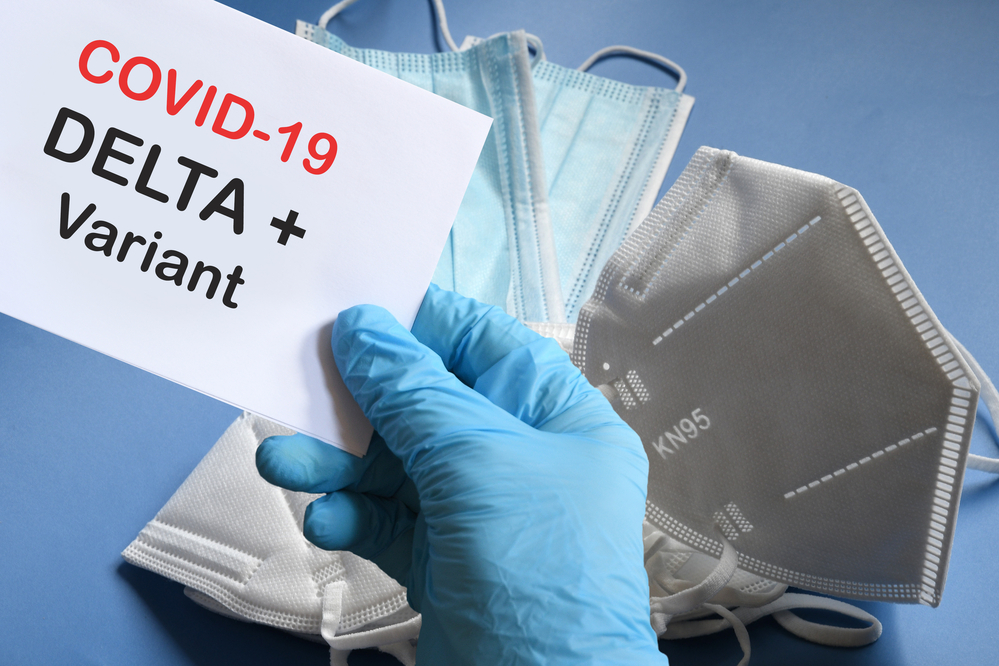Updated 8/4/21
The Delta Variant spread
The Delta variant of Covid-19 is surging rapidly in various parts of the country. The CDC says “As of July 22, 35% of U.S. counties are experiencing high levels of community transmission. COVID-19 cases are on the rise in nearly 90% of U.S. jurisdiction.” The surge is more severe in states where vaccination levels are lower. Nationally, 97% of patients hospitalized with COVID-19 are unvaccinated, as of July 22. Hospitals in some hard-hit states are being overwhelmed. Here are some resources to learn more about the spread and how it is affecting your state:
- CDC Covid Data Tracker Weekly Review
- Mayo Clinic – Check US and state coronavirus trend maps – see Delta over the past 60 days and a 15 day forecast
- The New York Times has a national daily update and allows you to track Coronavirus cases in places important to you
- The Washington Post also offers daily tracking both nationally and by state.
More about the Delta variant and why it needs to be taken seriously
Each new variant of Covid-19 becomes progressively more contagious. The Delta Variant is about 50% more transmissible than the strains we saw in the US last spring, and those strains were about 50% more contagious than the first strains we originally experienced here in the US. And unlike earlier variants, children are coming down with Covid-19 and some cases are serious and require hospitalization.
Stopping an infectious disease requires a preponderance of the population to develop immunity. When a critical mass of a population is vaccinated, “herd immunity” is achieved. Think of polio or smallpox. These illnesses were devastating to US and global populations. Massive public health vaccination campaigns virtually eliminated those terrible illnesses here in the US and in most global regions. To learn more about herd immunity see this article from Johns Hopkins, explaining how we develop immunity. Note that this was written in the spring and vaccination rates have slowed since then. Stopping an infectious disease requires a preponderance of the population to develop immunity.
- Yale Medicine: 5 Things To Know About the Delta Variant
- Washington Post: What you need to know about the highly contagious delta variant
- UC Davis Health: Delta variant: 8 things you should know about this COVID-19 strain
- American Lung Association: All You Need to Know About the Delta Variant
- American Medical Association: What doctors wish patients knew about the dangerous Delta variant
The importance of vaccines
Vaccines are so far showing good protection against the Delta Variant. Hospital reports indicate that deaths and admissions to ICU are almost exclusively occurring in non-vaccinated populations. While most vaccinated people DON’T contract the Delta variant, breakthrough cases can and do occur, particularly among elderly and vulnerable populations. Overall, these cases are much less severe than those experienced by people who have not been vaccinated.
Vaccines are not yet approved for children 12 and under. Unlike earlier variants, children are contracting Covid-19 and some cases are serious and require hospitalization. This is one of the reasons we must get vaccines and take other precautions – to protect our children, and to protect immune-compromised people, such as those who are fighting cancer.
Expect to see an increase in vaccine requirements by state and private employers. For example, Biden will announce vaccination requirement across federal government on Thursday (7/28/21) and More Hospitals Are Requiring Workers to Get Covid Vaccines (7/21/21). With some few exceptions, employers have a right to require vaccines. See: Vaccine mandates are mounting — and courts are upholding them so far.
Who Can Make You Get a Covid Vaccine? – Employers, universities and local governments can all issue some type of vaccination requirement. Here’s what to know about the mandates. (NYT 8/3/21)
- Find vaccines near you
- Frequently Asked Questions about COVID-19 Vaccination
- Myths and Facts about COVID-19 Vaccines
How to protect yourself
If you have been waiting to get your vaccine, make it a priority to get one now. Health officials recommend people protect themselves from the Delta Variant the same ways that they have been for other COVID-19 variants. Here’s a summary of guidance from health authorities. Note that local guidance could change at any time.
- Masking. The CDC offers US guidance. Previously, they said that says fully vaccinated people do not need to wear masks indoors in most settings, but with the Delta Variant, they have new guidance: CDC updates guidance, recommends vaccinated people wear masks indoors in certain areas (7/27/21). Doctor Anthony Fauci says individuals should make their own decisions factoring in their age, health status, and circumstances. The World Health Organization, which offers guidance for the entire world, encourages everyone to wear masks while inside. When you wear a mask, a multilayered, well-fitted mask should cover both the nose and mouth.
- Social gatherings. Practice social distancing. Outside activities are safer than inside. Avoid crowds inside and out. Limit gatherings with people outside of your household.
- Wash hands frequently. This is a basic best health practice at all times. it helps to prevent the spread of germs and transmissible illnesses.
Related:
- CDC: Your guide to masks
- Littler: Facing Your Face Mask Duties – A List of Statewide Orders 8/3/21
- Why some experts recommend upgrading to N95 masks to help fight the delta variant 7/24/21
- Delta Variant Is On The Rise. Here’s How To Stay Safe And Protect Others
- The Swiss Cheese Model of Pandemic Defense – multiple layers improve success
Additional Resources
- Check your state’s current health guidance: State & Territorial Health Department Websites
- CDC: Coronavirus (Covid-19)
- World Health Organization (WHO): Coronavirus disease (COVID-19)
- In the Pandemic Your EAP Can Help. Now, More Than Ever

